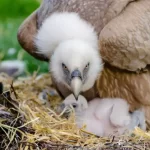The Ultimate Act of Love: A Chinese Woman’s Approach to Inheritance Planning for Pets
The post The Ultimate Act of Love: A Chinese Woman’s Approach to Inheritance Planning for Pets appeared first on Healthy Holistic Living.
Our familial bonds and legacies often define our most significant decisions, the story of a Shanghai woman named Liu takes an unexpected turn, weaving a narrative that challenges conventional expectations. When faced with the twilight years of her life, amidst the silence of her own home, Liu found solace not in the laughter or company of her children, but in the quiet, comforting presence of her cats and dogs. These furry companions, with their unwavering loyalty and affection, became her sanctuary in a time of need. Deciding to leave a $4.3 million fortune to these silent keepers of her heart, Liu’s story is not just about wealth and where it ends up; it’s a poignant reminder of the value of companionship, the complexities of human relationships, and the often-overlooked emotional depth of the bonds we share with our pets. As we unravel the layers of this intriguing tale, we’re invited to reflect on our own lives, the nature of love, and the legacies we choose to leave behind.
Let’s explore this extraordinary tale further, uncovering the emotional pain, legal challenges, and the deep love a woman had for her pets, which surpassed her connection with her distant family.
The Heart of the Matter: A Tale of Unconditional Love
In the bustling metropolis of Shanghai, an elderly woman named Liu made headlines with a decision that left many in disbelief. After years of solitude, exacerbated by the absence of her children during times of illness and old age, Liu chose to bequeath her entire fortune, amounting to a staggering 20 million yuan ($4.3 million), not to her offspring but to her most loyal companions: her cats and dogs. This choice was not made lightly but stemmed from a profound sense of betrayal and loneliness, countered only by the unconditional love and comfort she found in her pets. Liu’s story underscores a stark reality — the irreplaceable emotional support animals provide when human connections falter.
Liu’s initial will had included her children, offering them money and property as tokens of a mother’s love and legacy. However, their prolonged neglect and indifference led her to a pivotal decision: to revise her will in favor of those who had truly been there for her. This act was not just a statement about her pets’ significance in her life but also a testament to the deep emotional wounds inflicted by her children’s neglect.
The legal intricacies of her decision brought additional challenges. In China, directly leaving a fortune to pets is not permissible. Yet, Liu’s determination to ensure her beloved animals would be cared for after her passing led to the appointment of a local veterinary clinic as the administrator of her inheritance. This unconventional arrangement highlighted her unwavering commitment to her pets’ well-being and opened up discussions on the legal frameworks surrounding inheritance and animal care.
Liu’s story is a poignant reminder of the complex interplay between human emotions and legal boundaries. It invites us to ponder the depth of our relationships, both with the people in our lives and the pets we hold dear. Her decision, driven by a mix of heartache and love, illustrates the lengths to which one can go to ensure their most faithful companions are protected, even in their absence.
This heartfelt story reminds us to value friendship and understand how our decisions impact others when we’re no longer here. Liu’s narrative goes beyond dividing assets—it’s a profound statement about valuing and loving those who support us, showing the strength of our bonds with them.
Understanding Legal Boundaries: Leaving Fortunes to Pets
Liu’s heartfelt decision to leave her considerable fortune to her pets brings to light the intricate dance between personal wishes and the legal frameworks that govern them. In China, as in many parts of the world, the law does not permit animals to directly inherit wealth, posing a unique challenge to those wishing to ensure their pets are cared for after their passing. This legal boundary prompts a closer examination of how one can navigate the system to honor their emotional bonds with pets within the confines of the law.
The solution found for Liu’s situation involved appointing a local veterinary clinic as the steward of her $4.3 million legacy, tasked with the care and welfare of her beloved animals. This arrangement, while unconventional, was meticulously designed to align with legal standards, ensuring her pets would continue to live in the comfort and care they were accustomed to under her roof. The clinic’s role as the administrator of Liu’s estate underscores the possibility of finding creative solutions within legal constraints, offering a blueprint for pet owners with similar intentions.
Legal experts, including officials from the Will Registration Centre headquarters in Beijing, highlighted the importance of appointing a trustworthy individual or organization to oversee the well-being of pets included in a will. This safeguard is crucial to prevent misuse of the funds and to ensure the pets’ needs are met as intended by the benefactor. Liu’s choice, though fraught with potential risks, was made with the hope and trust that the veterinary clinic would honor her wishes faithfully.
The story also touches on the fluidity of legal documents like wills, which can be updated or revised as circumstances change. This adaptability is a critical aspect of estate planning, allowing individuals to reflect new realities or shifts in relationships over time. For Liu, the door remained open to amend her will, should her children’s attitudes change, underscoring the dynamic nature of personal legacies and the law’s capacity to accommodate evolving familial landscapes.
Liu’s journey through the legalities of leaving a fortune to her pets illuminates the broader discussion about the rights of animals and the responsibilities of humans to provide for their care. It raises important questions about how societies value the non-human companions that play such a significant role in many people’s lives and challenges us to think creatively about how to ensure their protection and welfare, even after we’re gone.
The Role of Family in Elderly Care
The poignant tale of Liu and her decision to leave her fortune to her pets rather than her estranged children underscores a deeper societal issue: the role of the family in the care of the elderly. This narrative is not just a story about an individual’s choice but a reflection on the changing dynamics of family responsibility and the often-overlooked emotional needs of aging parents.
In many cultures, the care of elderly family members is seen as a fundamental duty, a way of reciprocating the care and upbringing provided by the older generation. However, as Liu’s story highlights, the reality can be starkly different. The neglect she experienced, characterized by a lack of visits and communication from her children, is a scenario unfortunately familiar to many. It brings to the forefront the question of what society owes its older members and how the bonds of family can fray under the pressures of modern life.
This story serves as a reminder of the importance of maintaining connections, offering support, and showing appreciation, not just as moral obligations but as essential elements of human connection and compassion. The emotional void Liu felt, filled only by the presence of her pets, illustrates the profound impact of isolation and loneliness on the well-being of the elderly.
Moreover, Liu’s story is a call to action for individuals and communities to reconsider and reinforce the support systems available to the elderly. Whether through more inclusive social policies, community programs, or personal initiatives, the goal is to ensure that aging individuals receive the care, respect, and companionship they deserve. It highlights the need for a societal shift towards more holistic care models that address not only the physical but also the emotional and social needs of the elderly.
In addressing the role of family in elderly care, we are prompted to examine our values and actions towards the older members of our community. Liu’s decision, while extreme, catalyzes discussing how we can better support and honor the elderly, ensuring they are not left to face their twilight years in solitude. It’s a reminder that the essence of family lies not just in the bonds of blood but in the actions of love, care, and respect we show each other throughout our lives.
The Power of Animal Companionship
Liu’s heartfelt decision to bequeath her fortune to her pets rather than her estranged children brings to light the profound comfort and companionship that animals can provide, especially to the elderly. This choice, while surprising to some, underscores a universal truth recognized by pet owners everywhere: animals offer a unique form of emotional support that can sometimes surpass human relationships in their unconditional nature.
Pets, with their constant presence, unwavering affection, and non-judgmental companionship, become more than just animals to care for; they transform into cherished family members, confidants, and sources of joy and comfort. For Liu, her cats and dogs were the ones who stood by her when others did not, offering solace and a sense of purpose during her loneliest times. This bond highlights the significant role pets can play in enhancing the quality of life for the elderly, providing not just companionship but also a sense of being needed and loved.
The emotional benefits of pet ownership are well-documented, with studies showing that interacting with pets can reduce stress, anxiety, and depression. For the elderly, these benefits are even more pronounced. Pets encourage physical activity, promote social interaction, and can even improve cardiovascular health. Moreover, the routine of pet care provides a structured daily schedule, offering a sense of normalcy and responsibility.
Beyond the physical and psychological advantages, the presence of a pet can offer a bridge to the wider community. Walking a dog, for instance, can lead to interactions with neighbors and other pet owners, fostering a sense of belonging and connectedness often lost in old age. This aspect of pet ownership becomes crucial in combating the social isolation many elderly individuals face, providing a natural avenue for engagement and conversation.
Liu’s story, therefore, is not just a narrative about her and her pets; it’s a testament to the power of animal companionship in providing emotional sustenance and enhancing life’s quality, especially in one’s later years. It serves as a poignant reminder of the value pets add to our lives, meriting consideration and care in our plans for the future, just as we would for any beloved family member.
Helpful Tips for Planning Your Legacy
When contemplating the legacy we wish to leave behind, the story of Liu and her pets is a compelling reminder of the diverse considerations we must navigate, especially when our beloved animals are part of our families. Here are practical tips for those thinking about how to include pets in their estate plans, ensuring their continued care and happiness.
Consult Legal Advice: Seek guidance from an estate planning attorney to explore the best options for including pets in your will. Legal experts can help navigate the complexities and provide solutions that align with your wishes and the law.
Selecting a Trustworthy Administrator: Carefully choose a person or organization, such as a trusted family member or a reputable animal charity, to act as the guardian or caretaker of your pets. This decision should be informed by the potential guardian’s willingness, ability to provide care, and shared values in pet care.
Establish a Pet Trust: Consider setting up a pet trust, if available in your jurisdiction. A pet trust allows you to allocate funds specifically for your pet’s care and stipulate the type of care your pet should receive, offering more control and protection than a standard will.
Detailed Instructions for Pet Care: Provide clear, detailed instructions regarding the daily care, medical attention, and any special needs of your pets. This ensures that the caretaker understands and is prepared to meet your pet’s specific requirements.
Financial Considerations: Allocate sufficient funds to cover your pet’s expected living expenses, including food, veterinary care, grooming, and any emergency costs. Be realistic about the costs to ensure your pet’s needs are adequately met.
Regularly Update Your Will: Life circumstances change, as do laws concerning estate planning and pet care. Regularly review and update your will and any related documents to reflect current situations and ensure your pet’s care arrangements remain appropriate and effective.
Communicate Your Wishes: Discuss your plans with family members, friends, and anyone involved in the care of your pets after your passing. Transparent communication can prevent misunderstandings and ensure everyone is prepared to honor your wishes.
Planning for the future, especially when pets are considered family members, is a profound act of love and responsibility. By taking these steps, you can ensure that your beloved animals continue to receive the care and affection they deserve, even in your absence. Through thoughtful planning, your legacy can reflect the depth of your bond with your pets, ensuring they remain protected and cherished.
Leaving Behind Legacies of Love: Ensuring Care for All Family Members
The story of Liu, who left her fortune to her pets instead of her estranged children, serves as a profound narrative about the bonds we form with those who provide us with unconditional love and companionship. It challenges us to reflect on the nature of family, the responsibilities we hold towards those in our care, and the legacies we choose to leave behind. As we consider our own estate planning, including the welfare of our pets underscores the importance of thoughtful, comprehensive planning that ensures our wishes are honored and our loved ones, both human and animal, are cared for. Liu’s story is not just a testament to the power of animal companionship but also a call to action for all of us to consider the impact of our decisions and the values we wish to embody for future generations.
The post The Ultimate Act of Love: A Chinese Woman’s Approach to Inheritance Planning for Pets appeared first on Healthy Holistic Living.












